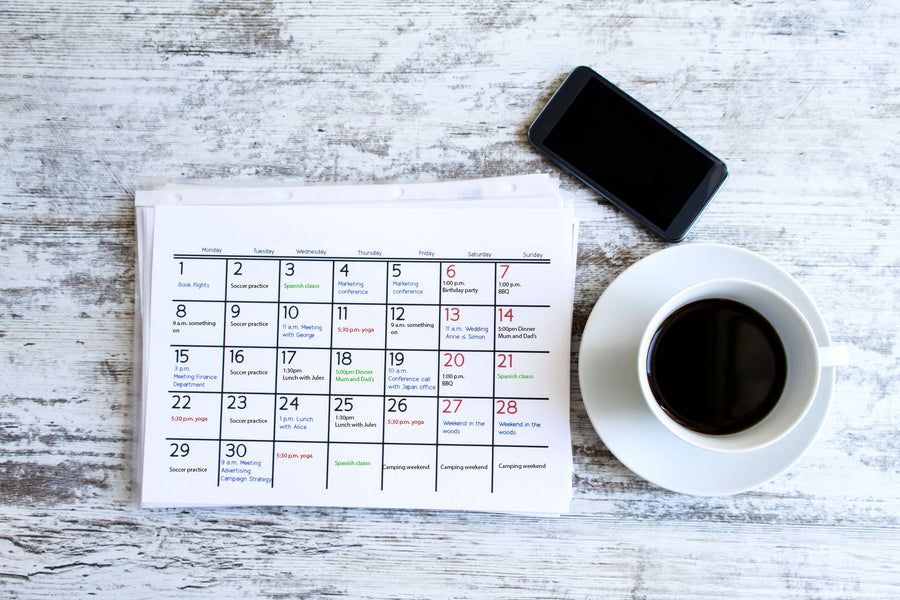
It is the birthright of every Australian child to join a sport team as soon as they can pay attention long enough to kick or throw a ball into an opposing team’s goal. So when it became apparent that my four-year-old son had absorbed his father’s love for soccer, it was clear that I had to take action. After due diligence I found an under fives local team but when I learned that they played at 10:15 on Sunday mornings I hit a wall. I was having trouble coming to terms with the fact that signing him up to soccer would mean our weekends would now be… scheduled.
Fresh in my mind were the stories of my friends who hurtle their kids to various activities each day, the colleagues who haven’t had a day off in weeks, and the relatives who haven’t taken a proper holiday in years. Where I live in Sydney, the stock standard response to “How are you?” is any variation of “crazy-busy-frantic-stressed” and I find myself having an aversion to this kind of all-consuming, universally accepted, harried and hectic way of life.
I wasn’t always this opposed to singing up for things. In fact, I used to be a “joiner.” As a child I joined the local sport teams, dance groups and drama classes. As a teenager I was in the social justice clubs and debating teams. As a full-time journalism student, I worked multiple jobs and took extra curricula courses that would give me the edge on the thousands of others competing for paid work. I was raised to believe that being busy is a sign of success and a measure of my capability. I believed that my busyness meant that I was going somewhere and achieving something. I believed that being busy was good for my mind, body and soul; that I could and should, do it all.
There’s good reason to think this way. Emerging evidence suggests that higher levels of busyness are associated with better brain function. In a study called “The Busier the Better,” researchers found that in a group of more than 300 people, greater busyness was associated with better brain processing speed, working memory, episodic memory, reasoning, and crystallised knowledge. When different researchers analysed half a million tasks by almost 29,000 users, they discovered that it took busy people an average of 12 days to complete an activity whereas non-busy people took 19 days. In other words, the expression “if you want something done, give it to someone who is busy” holds true when put under the microscope.
It wasn’t until I was struck down with an autoimmune disease which is significantly exacerbated by a fast and furious lifestyle that I learned there’s a difference between being productive-busy and being chronically, dangerously stressed. It’s not surprising that just as the evidence shows that being good-busy improves our mind, motivation and productivity, it also shows that the chronic lack of self-care that inevitably accompanies excessive-busyness can have long-term health consequences. For example, a scientific review of the relationship between long working hours and heart disease found that people who work more than the eight-hour average day have about a 40 percent higher risk of heart disease. Men who don’t take vacations are more likely to die from a heart attack and women who fail to take time off work are more likely to suffer from depression.
Back when I first fell ill, I would blast through my day, relying on caffeine to boost my energy. I told myself that I was too busy to cook, too busy to sleep, and too busy to find regular time for loved-ones. I thought of my illness as something that was “in the way” and tried to push past it. But the truth was, being too busy meant that I didn’t have the necessary time to look after myself in order to get well. I’m not alone. The 2010 American Psychological Association Stress In America survey found that the majority of Americans recognise that their stress exceeds levels necessary to maintain good health. The irony is that the most frequent reason people cited for not addressing the problem is being too busy.
As I’ve written about before, these days, I’ve chosen health over wealth. I've made career decisions that mean my daily routine is mostly stress free. My kids generally wake to the demands of their own well-rested bodies rather than an alarm. I also meditate daily and try to say "no" more than I say "yes." But with that said, please don’t think that I’m some kind of zenned-out, earth-mother who is on a mission to guilt trip others into reforming their stressed-out ways. I’m far from achieving the so-called work-life-health balance and 37-years of programming in a society that reveres achievement and striving is difficult to re-wire, even with the burden of an autoimmune disease sitting on my shoulder.
In the end, I did enrol my son into his Sunday morning soccer sessions and he loves them. But my point is this, when we’re busy doing things for others, for our career, and for the rest of the world, we often fail to look after ourselves and, despite the fact that we tell ourselves we’re busy making the world a better place, there’s evidence to show we’re also failing to see the genuine needs of others. When I’m weighing up whether or not to put my hand up for the next great opportunity that comes my way, I try to remember first and foremost that there’s a reason we’re called human beings and not human doings.





 The Connection (DOWNLOAD-TO-OWN)
The Connection (DOWNLOAD-TO-OWN) My Year Of Living Mindfully - Book
My Year Of Living Mindfully - Book




